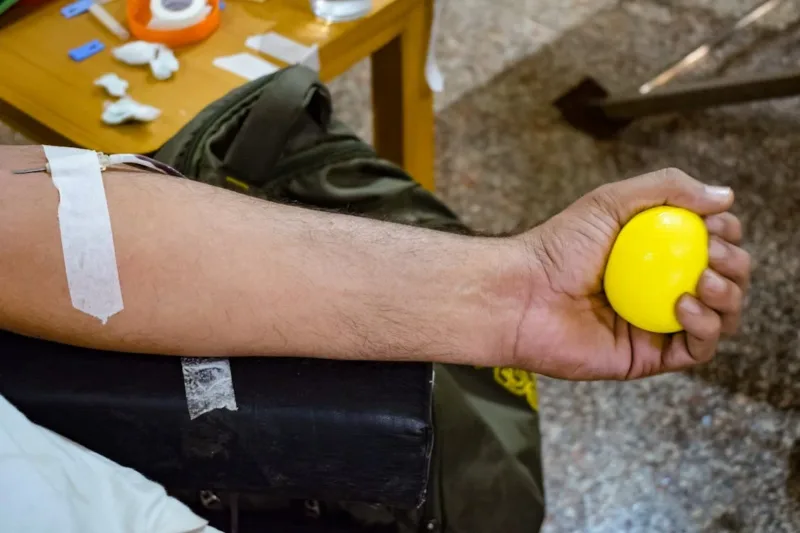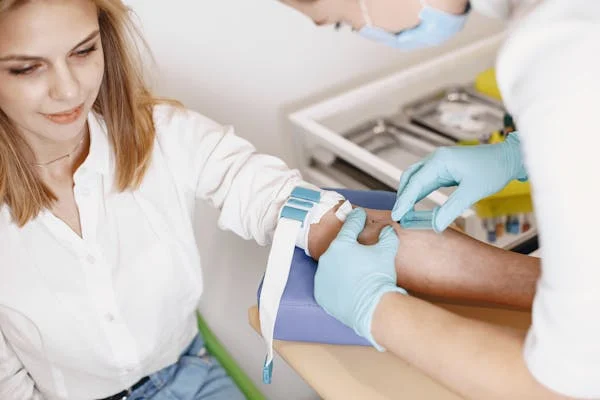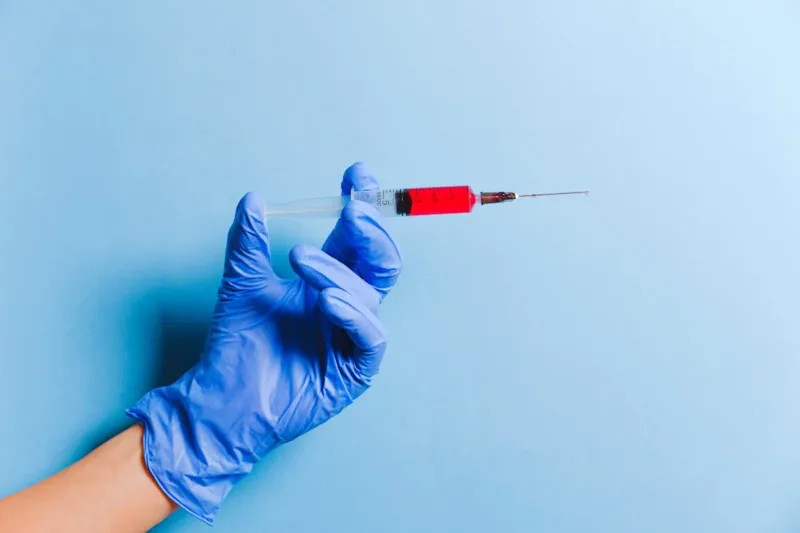
If you’re looking for a way to earn extra cash while contributing to a good cause, selling blood plasma could be a viable option. Unlike regular blood donations, plasma donations can come with significant financial benefits. Plasma donors can make between $360 to $1,000 a month, depending on how frequently they donate and the compensation offered by the plasma centers.
Health and safety are paramount when donating plasma. While the money might be appealing, remember that your health should always come first. Plasma donations typically take longer than regular blood donations, sometimes leading to temporary side effects like fatigue. To mitigate these effects, stay hydrated and well-nourished before and after your donations.
Many centers offer bonuses and special promotions for new and regular donors, increasing your potential income. If you plan to donate plasma frequently, it’s a good idea to research and choose a reputable donation center. Friendly staff, clean facilities, and efficient donation processes can significantly impact your overall experience. So, if you’re considering this route to boost your income, don’t forget to weigh the benefits and the responsibilities involved.

Donating plasma offers several benefits that might surprise you.
Extra Cash: First and foremost, you can earn some extra cash. Many centers compensate for your time, which can be a valuable incentive. It’s a practical way to boost your budget without a significant time commitment.
Regular Checkups: Before each plasma donation, you’ll undergo a mini-physical. This includes checking your temperature, pulse, blood pressure, and hemoglobin levels. Think of it as a regular health checkup without the usual cost.
Support the Community: By donating plasma, you’re helping those in need. Plasma is crucial for treating various medical conditions, including clotting disorders and immune deficiencies. Your donations could save lives and improve the quality of life for others.
Proteins and Antibodies: Plasma contains proteins and antibodies vital for medical treatments. Donating allows these essential elements to be used in creating therapies and supporting patients who need them.
Improved Health Consciousness: Engaging in plasma donation often makes you more health-conscious. You may find yourself adopting healthier habits to meet donation requirements. This can include better diet choices, regular exercise, and avoiding risky behaviors.
Incentives and Rewards: Some centers offer additional perks. You might get rewards like gift cards, bonuses for frequent donations, or even free Wi-Fi and refreshments during your visit. Each center has its own set of incentives, so it can be worth shopping around.
Eat well and stay hydrated before your visit to ensure a smooth donation process. Always choose reputable donation centers and follow their health guidelines to maximize these benefits.
See Related: The Lazy Person’s Guide to Earning Money Online Effortlessly

Choosing the right plasma center is essential if you are considering donating plasma for money. It ensures a smooth experience and maximizes your compensation. Here are some tips to help you find the right donation center.
First, research local plasma centers. Several reputable centers operate nationwide, including Octapharma Plasma, Grifols Plasma, and BioLife Plasma Services. Use online resources like givingplasma.org to find donation centers nearby.
Consider checking out for-profit plasma centers. These centers often provide competitive compensation and incentives. For instance, some regular donors can make up to $1,000 monthly due to frequent donation bonuses and special promotions. Investigating their compensation structure is crucial.
Safety and cleanliness are paramount. Ensure that the plasma center complies with all safety standards the FDA sets. A reliable center will have a clean facility and trained staff, ensuring you have a safe and comfortable donation experience.
Engage with the community of plasma donors. Reading reviews and testimonials can provide valuable insights into the experiences of others. Look for feedback on the staff’s professionalism, wait times, and the donation process.
Don’t overlook non-profit organizations like the American Red Cross. While they might not offer payment, their primary goal is to provide lifesaving plasma to needy people. It’s an excellent option if your motivation is more altruistic.
Health Tips for Donors:
Addressing these factors will help you find the most suitable donation center. Your donation experience can be rewarding and beneficial when you’re informed and prepared.

When you donate plasma, it’s important to be prepared for a few things. The process usually starts with a health screening, checking your blood pressure, iron levels, and general health. Bring a valid ID; this is standard procedure at all centers.
The Donation Process:
The entire process takes roughly 90 minutes, much longer than donating blood. The needle might cause discomfort, but it shouldn’t be painful.
Payment:
Side Effects:
It’s common to feel some fatigue or dehydration after donating. Make sure to hydrate well before and after your appointment. Eating a healthy meal beforehand can also help.
Possible bruising at the needle site is normal, but any severe pain should be reported. Rarely do some people experience other reactions, so it’s always good to know what signs to look for.
Health Tips:
Donating plasma not only provides you with some extra cash, but it also plays a vital role in medical research and treatments. This can be a rewarding experience; take care of yourself.
See Related: Quick Steps to Start Making Money Online Today

Believe it or not, selling blood plasma can be a lucrative way to boost your income. You can even help save lives while padding your wallet. Here’s how you can maximize your earnings from plasma donations:
First and foremost, choose the right donation center. Centers like CSL Plasma and BioLife typically offer competitive rates. Location matters, too, since some states might compensate more than others.
Make frequent donations. While you can donate up to twice a week in the United States, this can depend on your weight and health. Check with your local donation centers regarding their specific policies, as some may offer incentives for regular donors.
Watch out for bonuses and promotions. Many centers offer bonuses for first-time donations, referral bonuses, and additional payments for high-frequency donors. Sign up for newsletters from these centers to stay updated on these offers.
Stay healthy. Your eligibility to donate depends on your overall health. Eating well, staying hydrated, and getting enough rest can ensure you meet the health criteria each time you visit.
Often, payments are made via prepaid debit cards, which are convenient and quick. Also, keep track of your donations for tax purposes, as the IRS may view this income differently than regular wages.
Consider these tips for best practices:
All these steps combined can help you maximize your earnings while maintaining your health.

When selling blood plasma, being aware of potential health impacts is crucial.
Donating plasma typically takes about an hour and involves inserting a needle into your arm. You might feel fatigue or dizziness afterward, especially if you’re new to the process. Always make sure to stay hydrated and well-nourished before your appointment.
Frequent plasma donation can sometimes lead to nutritional deficiencies. Plasma contains important nutrients, hormones, and proteins. Losing these can affect your overall health, so a balanced diet is essential.
There’s also a risk of bruising or scarring at the needle site. This is usually minor, but consult a healthcare provider if you notice persistent pain or unusual symptoms. Repeated donations may increase the chance of more serious conditions like circulatory issues.
Individuals with bleeding disorders such as hemophilia or those with immune deficiencies should generally avoid selling plasma. Plasma donation could exacerbate bleeding, scarring, or immune problems.
If you take certain medications, especially those that affect blood clotting or hormones, discussing this with the donation center is vital. Some medications might make you ineligible to donate.
Mild side effects, such as dizziness, fainting, or dehydration, are common. Make sure to rest adequately and drink plenty of fluids after the donation. Bringing a snack afterward can also help your recovery.
Maintaining good nutrition is key. Iron-rich foods like spinach or red meat can help replenish what’s lost during donation. A well-balanced diet keeps your body functioning well and can help reduce negative side effects.
It’s worth noting that while selling plasma can supplement your income, your health should always come first. Ensuring you’re healthy before and after each donation is essential to avoid long-term issues.
See Related: Make Money in Your Neighborhood: Jobs to Do for Money

Selling blood plasma can be a complex topic, especially when considering the legal and ethical dimensions. In the U.S., the FDA regulates plasma donations, ensuring the process is safe for donors and recipients. Unlike many countries, such as Germany and China, where paying for plasma is illegal, the U.S. allows compensation.
Ethical concerns often revolve around the commercialization of plasma donations. Critics argue that for-profit plasma centers exploit vulnerable populations. Kathleen McLaughlin highlights in her book how low-income individuals, including those in poverty, often rely on plasma sales as a financial lifeline.
While selling plasma is legal, the plasma industry must follow strict guidelines to ensure donor safety. The American Red Cross, for instance, does not pay for blood donations and focuses on voluntary donations to avoid ethical dilemmas. In contrast, for-profit centers offer compensation, raising questions about fairness and moral implications.
Pros:
Cons:
When you sell plasma, it’s classified as taxable income, which might affect your tax returns. You should always consult a tax professional to understand your obligations. Some donors find plasma donations a fair exchange, but weighing the benefits and ethical considerations is imperative.
Always ensure you donate at certified centers and follow health tips like staying hydrated and eating well before donating. This way, you contribute safely to the plasma economy while caring for your health.
Last updated: June 19, 2024